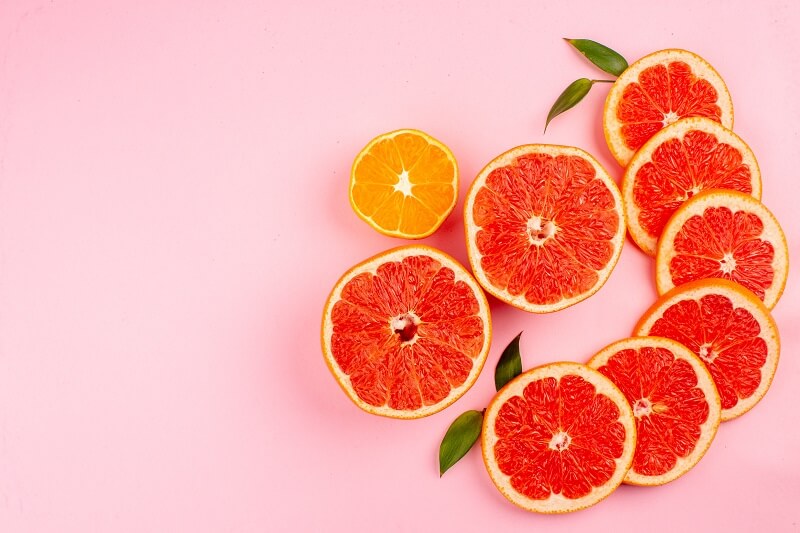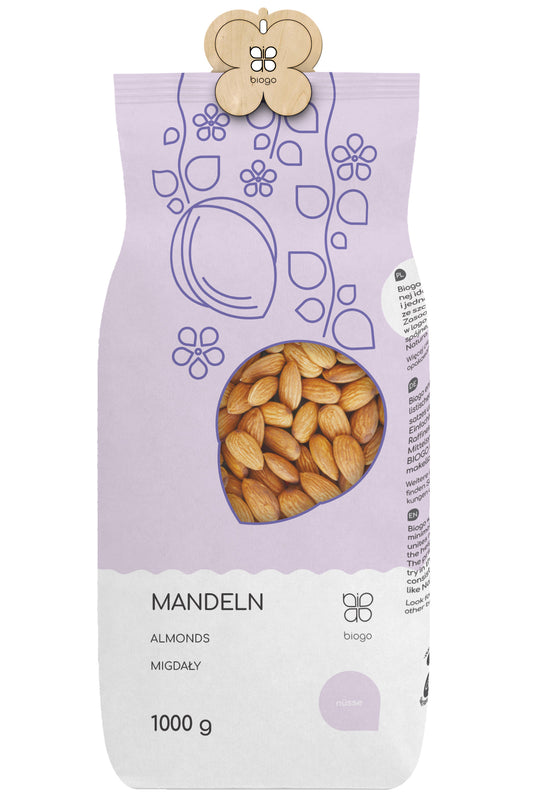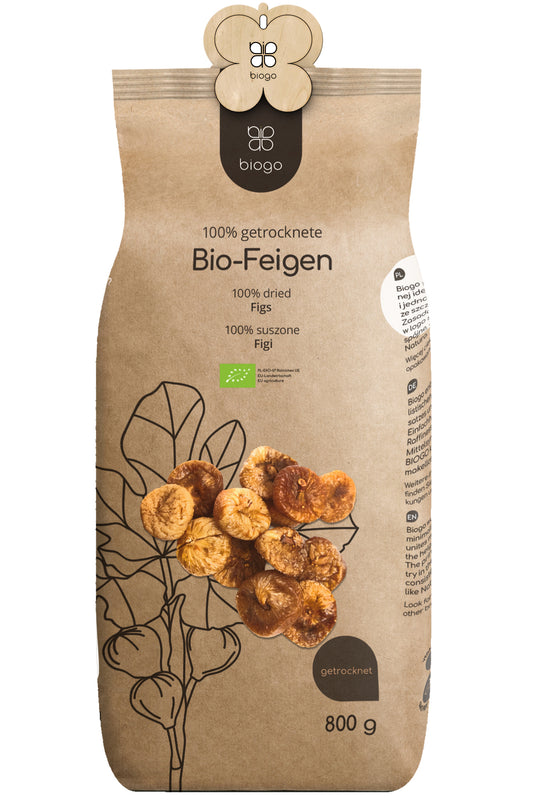Quels produits naturels peuvent soutenir le travail de notre foie ?
Contenu
- Quelles fonctions le foie remplit-il dans notre corps ?
- Fonction de détoxification du foie
- La fonction de filtrage du foie
- La fonction de stockage du foie
- Fonction immunitaire du foie
- Quels aliments peuvent soutenir la fonction hépatique ?
- Résumé
Notre foie est un organe particulièrement vulnérable à divers types de dommages. Cela est dû aux fonctions qu’il remplit dans le corps. Il est vrai que ses cellules sont parmi les rares à avoir la capacité de se régénérer. Néanmoins, cela ne vaut pas la peine de faire un travail supplémentaire et de consommer plutôt des produits qui peuvent améliorer l’efficacité et le fonctionnement. Le foie est un organe très intéressant et, avec les reins, le premier bastion de défense contre les substances nocives, mais aussi contre les produits métaboliques produits dans l'organisme. Cela nous a incité à discuter de plusieurs produits facilement disponibles qui peuvent contribuer à un bon fonctionnement. Nous vous invitons à lire.
Quelles fonctions le foie remplit-il dans notre corps ?
Notre foie est l’un de ces organes qui remplissent de nombreuses fonctions dans le corps. Il s’agit notamment des fonctions de détoxification, d’immunité, de stockage et de filtrage. L’état de cet organe est extrêmement important pour le bon fonctionnement de l’ensemble du système. Bien que le foie soit un organe relativement difficile à endommager, il ne vaut pas la peine de le surcharger avec encore plus de travail. Au contraire, il existe de nombreux composés chimiques qui peuvent améliorer sa fonction et augmenter sa résistance.
Fonction de détoxification du foie
La fonction de détoxification du foie est probablement la plus connue de nous tous. Enfin, il neutralise de nombreuses toxines qui pénètrent dans notre corps avec la nourriture. Il s’agit notamment de l’alcool, des barbituriques et de nombreuses autres substances contenues dans divers médicaments. On pourrait dire que c'est une sorte de filtre et le premier bastion des défenses de l'organisme. De plus, il transforme l’ammoniac toxique en urée nettement moins nocive. Il participe également activement à la production de bile, un composé nécessaire à la bonne digestion des graisses, et peut en produire près de 1,5 litre par jour. Son rôle dans la désactivation, la conjugaison et la dégradation de tous les types d’hormones ne peut être négligé. Aussi bien ceux produits par le corps que ceux qui viennent de l’extérieur du corps. De plus, de nombreuses substances nocives peuvent y être stockées, notamment des conservateurs alimentaires, des produits chimiques issus de la culture des plantes ou les ingrédients mentionnés ci-dessus de nombreux médicaments. Cela les empêche de pénétrer dans la circulation sanguine et de causer de graves dommages.
La fonction de filtrage du foie
Il ne fait aucun doute que les reins sont souvent associés à la fonction de filtrage. C’est vrai, mais cela ne change rien au fait que notre foie a également beaucoup à dire dans ce domaine. Il est responsable du traitement des érythrocytes qui ne peuvent plus remplir leur fonction. Cependant, ils ne sont pas simplement éliminés. Finalement, il trouve des parties qui peuvent être réutilisées pour former de nouveaux globules rouges. Le reste est excrété par le corps. Les fonctions de base de cet organe comprennent également la synthèse de l’urée. Ce processus est appelé désamination et est nécessaire au bon fonctionnement de tout l’organisme. Ammoniac toxique – produit lors de la digestion des acides aminés dans l’intestin, puis passe au foie, où il est métabolisé en une forme beaucoup moins toxique (urée). Sous cette forme, il est excrété dans l’urine.
La fonction de stockage du foie
Le foie est également une sorte d’entrepôt du corps. Enfin, il peut générer de l’énergie grâce à sa capacité à convertir le sucre en glucose et en graisses. Les glucides ingérés avec les aliments sont ensuite convertis en sucres simples – le glucose. Ce sucre est ensuite stocké par le foie sous forme de glycogène. Lorsque notre corps a besoin d’un regain d’énergie lors d’une activité physique intense, ce composé est métabolisé en glucose. En plus du glycogène, notre foie est capable de stocker de nombreuses autres substances. Cela comprend toutes les vitamines et tous les minéraux. Dans ce cas, la situation est assez similaire. Lorsque le corps a besoin de ces substances, elles peuvent être libérées dans la circulation sanguine. Il est intéressant de noter qu’un foie sain peut stocker une réserve de vitamine A pour une période de 1 à 2 ans, mais également une quantité importante de vitamine B12 (une réserve pour 2 à 3 ans) et de vitamines A et D (une réserve pour 2 à 3 ans). environ 2 mois). Il peut également y avoir une accumulation de fer et de certaines protéines plasmatiques. Il joue également un rôle important dans la production de toutes les protéines. On estime qu’il produit près de 85 % de toutes les protéines du plasma sanguin. Il s’agit par exemple de l’albumine et de la prothrombine. Il produit également des acides aminés nécessaires à une synthèse ultérieure, et leur dégradation dans le foie peut produire des acides céto et de l'ammoniac.
Fonction immunitaire du foie
Le foie a également une certaine fonction immunitaire et celle-ci est étroitement liée à sa structure. Les cellules de cet organe ont une structure en forme de filet. Cela leur permet de filtrer et de retenir de nombreuses bactéries, virus, champignons, parasites et leurs antigènes. De plus, ils sont détruits par les macrophages du foie. Nous pouvons donc affirmer sans risque qu’il est très important de façonner les défenses immunitaires de l’organisme et de neutraliser les menaces potentielles.
Quels aliments peuvent soutenir la fonction hépatique ?
Certaines substances sont nocives pour le foie et peuvent lui donner un travail supplémentaire. Le deuxième groupe d’aliments, à son tour, peut avoir un effet bénéfique sur la santé du corps et soutenir ses fonctions. Nous nous concentrons donc sur ce dernier groupe de produits.
Betteraves et carottes
Les carottes et les betteraves sont une excellente source de tous les types de flavonoïdes, y compris le glutathion. Cette substance peut contribuer de manière significative à détoxifier le foie, à renforcer ses cellules et à stimuler sa fonction. Il convient de noter que les deux légumes doivent être consommés crus pour obtenir cet effet.
thé vert
Le thé vert est une source de nombreuses substances bénéfiques pour la santé, notamment des antioxydants. De plus, il est connu pour ses propriétés nettoyantes. Les catéchines qu’il contient soutiennent le travail du foie et préviennent l’accumulation excessive de cellules graisseuses. Même l’inclusion d’une petite quantité d’infusions de thé vert dans votre alimentation aura certainement un effet positif sur le fonctionnement de cet organe.
curcuma
Le curcuma combine les bienfaits d’une épice savoureuse et d’un ingrédient actif qui a un effet véritablement positif sur la fonction hépatique. On peut l'utiliser sous forme de poudre aromatique, mais aussi sous forme de racines entières. Il possède des propriétés anti-inflammatoires, soutient l'immunité naturelle du corps, est antioxydant et peut favoriser la régénération du foie. Ajoutons qu’il n’est pas nécessaire d’en consommer en grande quantité. Même de petites doses peuvent faire une grande différence.
Un avocat
L’avocat a récemment été qualifié de superaliment, et ce n’est en aucun cas une exagération. Étant donné que le foie métabolise tous les types de graisses, il est judicieux de choisir celles qui lui imposent le moins de contraintes. Au lieu de consommer des gras trans malsains comme ceux présents dans les margarines ou des gras saturés comme ceux présents dans le saindoux ou le beurre, il est préférable de privilégier les avocats. Il contient des acides gras sains d’origine végétale, notamment des acides gras monoinsaturés. Ils peuvent nous aider à maintenir une bonne santé cardiovasculaire, mais plus important encore, ils sont extrêmement faciles à digérer. Ils n’exercent pas autant de pression sur le foie et nous aideront certainement à le maintenir en bonne santé pendant des années.
pamplemousse
Cet agrume peut avoir un grand impact sur le bon fonctionnement du foie. Non seulement il fournit une grande quantité de vitamine C, mais il peut également soutenir la fonction de détoxification de cet organe et possède des propriétés antibactériennes et antifongiques. De plus, il aide à accélérer la régénération et le nettoyage des cellules du foie.
Légumes à feuilles
Les légumes à feuilles, en particulier les légumes verts comme les épinards, la chicorée, la laitue et la roquette, contiennent de grandes quantités de chlorophylle. Il aide le corps, en particulier notre foie, à neutraliser de nombreuses toxines, notamment les métaux lourds, les pesticides et certains conservateurs populaires. De plus, il peut favoriser la production de bile et ainsi améliorer la digestion des graisses.
légumes du genre Brassica
Le brocoli, le chou ou le chou-fleur – qui appartiennent à la famille des crucifères – peuvent soutenir la fonction hépatique. Non seulement ils sont une source de nombreuses vitamines et minéraux, mais ils contiennent également du glutathion. Ce composé chimique joue un rôle clé dans le nettoyage de cet organe. De plus, une consommation élevée de légumes est importante pour maintenir un foie sain. Enfin, il peut prévenir des maladies telles que la stéatose hépatique et le développement du cancer du foie et a un effet positif sur tout notre corps.
Pommes
Ces fruits, sans doute les plus populaires dans notre pays, se caractérisent par une teneur élevée en pectine. Enfin, il gonfle dans nos intestins, facilitant leur nettoyage et l’élimination des toxines. Il n'agit pas directement sur le foie, mais il convient de mentionner que grâce à cette action, il peut aider à soulager considérablement cet organe dans sa fonction de détoxification.
Résumé
Le foie est un organe très important. Nous ressentirons certainement très rapidement toute perturbation dans les opérations. Malgré sa résistance relativement élevée à toutes sortes de dommages, cela ne vaut pas la peine de provoquer des dépenses supplémentaires inutiles. Cependant, ils peuvent certainement aider au fonctionnement quotidien. La consommation des produits mentionnés ci-dessus permet non seulement un effet plus long et plus efficace, mais a également un effet positif sur le bien-être de tout le corps.
LE CHOIX DE L'ÉDITEUR
Dattes séchées 1 kg BIOGO
- £4.00
£5.00- £4.00
- Prix unitaire
- / par
Amandes 1 kg BIOGO
- £11.00
£13.00- £11.00
- Prix unitaire
- / par
Graines de tournesol décortiquées 1 kg BIOGO
- £3.00
£4.00- £3.00
- Prix unitaire
- / par
Mangue séchée bio 400 g BIOGO
- £10.00
- £10.00
- Prix unitaire
- / par
Mûres blanches séchées 500 g BIO
- £6.00
£7.00- £6.00
- Prix unitaire
- / par
Popcorn (grains de maïs) bio 1 kg BIOGO
- £6.00
- £6.00
- Prix unitaire
- / par
Curcuma moulu bio 500 g BIOGO
- £6.00
- £6.00
- Prix unitaire
- / par
Graines de chardon-Marie 1 kg BIOGO
- £4.00
- £4.00
- Prix unitaire
- / par
Figues séchées bio 800 g BIOGO
- £27.00
- £27.00
- Prix unitaire
- / par
Sac #changezbiogo coton v.2
- £3.00
- £3.00
- Prix unitaire
- / par






































































































































